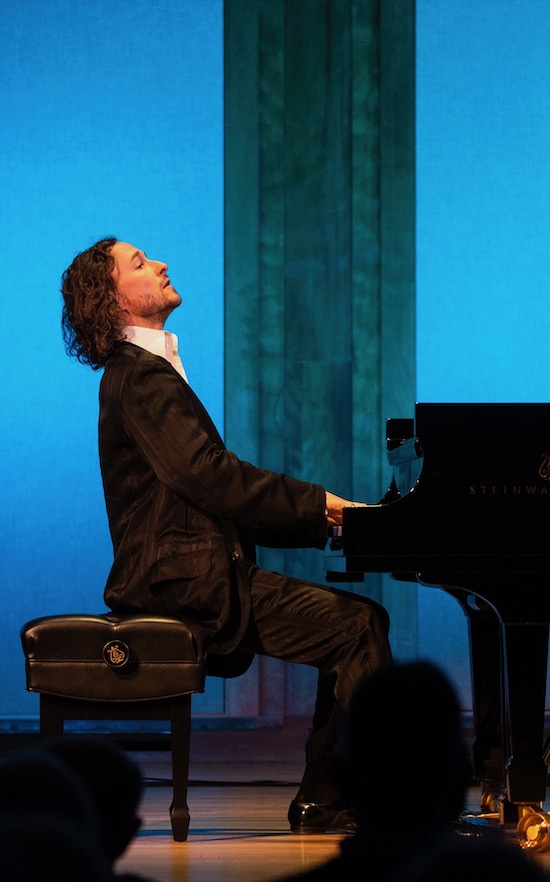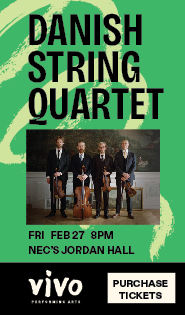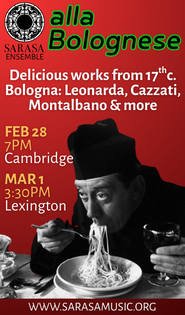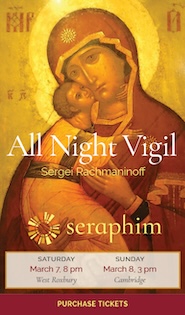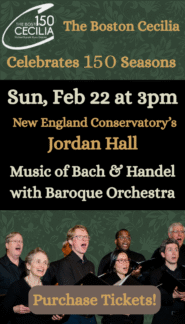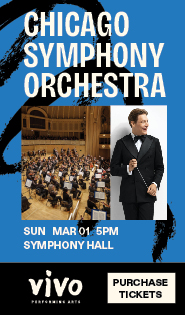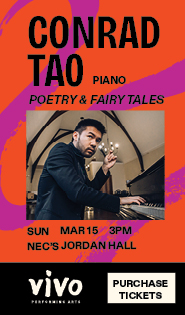Helmchen’s Celebrity Series recital offers a mixed bag of Bach
Tuesday night’s Celebrity Series recital by Martin Helmchen was, technically, the pianist’s local solo debut. But he’s no stranger to town, having appeared with the Boston Symphony at Symphony Hall regularly since 2015.
Even so, in those appearances Boston audiences have only heard a narrow, Classical-centric slice of Helmchen’s repertoire. Last night’s performance at Longy’s Pickman Hall rectified the situation somewhat with a focus on music by J. S. Bach.
That said, the selections in question—four of Bach’s six Partitas for solo keyboard (Nos. 1, 2, 5, and 6)—weren’t as strictly Baroque as they might have been. Yes, these suites utilize the familiar dance types (Allemande, Courante, Minuet, and so forth) and there are a couple of brilliant fugues fitted in among the movements. But the collection, which was first published in 1741, also looks ahead to the new era with its free and expanded treatment of old forms and adoption of galant principles of simplicity and elegance.
Helmchen certainly displayed a strong conception of the music. Tuesday’s performance was technically accomplished and he has all the notes under his fingers, which is no small achievement. Across the tetralogy, textures were lucid, balances smartly calibrated, and the pianist’s embellishments on repeats (he took every one) fresh and tasteful. He also entirely eschewed using the Steinway’s pedals.
What was intermittently lacking was the sense of spontaneity and dancing joy one encounters in the most gripping accounts of this fare (think Andras Schiff or Piotr Anderszewski). As a result, Helmchen’s traversal straddled, sometimes uneasily, a middle ground between expressive immediacy and abstracted emotional distance. This phenomenon was evident here and there throughout the night, but most strongly present in his readings of the first two Partitas.
In the B-flat-major No. 1, stiff, literal phrasings ensured that the Prelude and Allemande remained earthbound. While the Courante sparkled and both Minuets benefited from a strong sense of rhythmic drive, the lively closing Gigue lacked a measure of playfulness.
One wouldn’t have minded more of the last in the voicings of the C-minor Partita No. 2: rarely was there the sense of the lines gamely interacting. What emerged, instead, was an interpretation that tended to highlight the Partita’s big, bold strokes at the expense of its subtler touches. When the latter surfaced within this context—in, say, Helmchen’s diabolical take on the Rondeau or his stormy performance of the Capriccio’s rollicking bass line—the effect was potent.
The pianist was, overall, on surer interpretive footing in the latter Partitas. His account of the G-major (No. 5) was fluent and well-directed. If the Sarabande’s dotted rhythms sometimes seemed to function as an anchor from which Helmchen couldn’t fully extricate himself, the Minuet’s crisp metric games sparkled and the Gigue’s dancing fugue—though it threatened to implode at a couple of junctures—proved a thrill ride.
So, on the whole, was the E-minor Partita (No. 6). Helmchen let its opening Toccata speak in a reading that was supplely phrased, impassioned, and utterly free. The Courante’s syncopations snapped urgently, as did the Sarabande’s intense suspensions. Meantime, the Gavotte, with its whiplash turns, provided a bracing contrast.
Only in the Gigue did Helmchen veer back into abstruseness. Here, his severe account of the movement seemed more intent on bowling over the listener with the wonders of its contrapuntal complexity than on celebrating the music’s latent dancing character.
That this was a conscious choice—impressive in some ways, frustrating in others—was evident in the pianist’s deft management of the driving bass line as well as his illumination of the music’s busy textures. For his encore of the Scherzo from the Partita No. 3, though, Helmchen let loose a purely characterful reading that suggested he does, indeed, fully grasp this music’s élan vital.
The program is available On Demand from December 8-14.
The Junction Trio performs music by Amy Williams, Ravel, Gesualdo, and Robert Schumann 8 p.m. Saturday at Jordan Hall. celebrityseries.org
Posted in Performances
